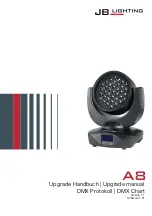
I-Transia™
2 Safety
2.1 General Guidelines
WARNING!
–
Read and understand these instructions. DO NOT
use this product without reading and understanding
these instructions and the hoist user manual. If you
need help with these instructions, contact a healthcare
professional or an Invacare dealer. Otherwise injury or
damage may occur.
ACCESSORIES WARNING
–
Invacare products can only be used with accessories
made by Invacare. Accessories not made by Invacare
have not been tested by Invacare. Accessories not
made by Invacare should not be used.
The information contained in this document is subject to
change without notice.
Check all parts for shipping damage before using. In case of damage,
DO NOT use the equipment. Contact an Invacare dealer for further
instructions.
2.2 Operating Information
This section of the manual contains general safety information about
your product. For specific safety information, refer to the appropriate
section of the manual and procedures within that section.
General
WARNING!
This manual covers the installation of the freestanding
rail system. Refer to the I-Transia user manual for safety
information related to using and maintaining the hoist.
–
Read the instructions carefully before using the
I-Transia and in connection with cleaning and service
of the hoist.
–
The freestanding system can be set up and taken down
by one person.
–
The freestanding rail system should be set up on a level
surface.
–
The I-Transia’s maximum load must never be exceeded.
–
The I-Transia may only be used to lift or move a person
with disabilities.
–
The freestanding rail system must not be used for any
other purpose than that stated in this user manual. The
rail system is not a playground or a swing device.
–
If the I-Transia fails while in use, stop using the hoist,
transfer the patient using a different method and
contact an Invacare dealer for repair by a certified
technician.
–
This product is mechanically protected against derailing
and jamming.
–
The end stops have to be properly installed and locked
with spring pins, and the 2 yellow thumb screws on
the top brackets have to be properly tightened before
using the system.
–
Check the freestanding system regularly to ensure it
is stable.
Pinch Points and Positioning
WARNING!
Risk of Injury
Pinch points are present on the strap carabiner
A
and
fingers could be pinched.
The hanger bar
B
can move suddenly and cause injury.
–
ALWAYS keep hands and fingers clear of moving parts
to avoid injury.
–
When positioning the hoist, be aware of the position of
the hanger bar
B
and the patient. Injury could occur.
WARNING!
Pinch points are present in the pivot points of the vertical
poles and between the top rail and the vertical poles.
–
ALWAYS keep hands and fingers clear of moving parts
to avoid injury.
–
ALWAYS keep hands and fingers clear of pinch points
during setup of the freestanding rail system.
2.3 Load Limits
Read the label on each component which indicates the maximum load
limits for each component.
The component, e.g. hanger bar, lifting sling, etc. labelled with the
lowest load limit determines the maximum load limit for the entire
system.
This maximum load limit must not be exceeded.
Please note that the max load may change when different components
are used, such as hanger bars, lifting slings, etc.
2
1183379A


























